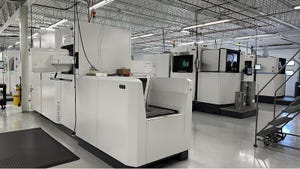February 16, 1998

With a three-year grant from NASA, a Cornell chef, nutritionist, food and biological engineer and vegetarian cooking teacher are collaborating to develop and test tasty, nutritious and economical recipes that astronauts can prepare from a limited set of 15 to 30 crops grown in future space habitats. Wheat and potatoes are the staples to be complemented with rice, soy and peanuts, salad crops and fresh herbs, all to be grown hydroponically in artificially lit, temperature-controlled space farms. "Our goal is to develop a database of food-processing information and a menu of at least 100 primarily vegetarian recipes of familiar and new menu items based on crops raised in a bioregenerative life support system," said Jean Hunter, associate professor of agricultural and biological engineering at Cornell who is heading up the project. The team also is developing a food-related decision-making strategy for NASA to use in bioregenerative life support systems for multiyear missions such as a lunar scientific colony or Martian surface exploration. Bioregenerative life support, in which plants and microorganisms regenerate air, water and food for the crew, is envisioned for long-term space exploration, starting 15 to 20 years from now. "Because the cost of transporting food for these missions will be astronomical, only about 15 percent of calories will be from Earth-made foods," added David Levitsky, professor of nutritional sciences and of psychology at Cornell who also is working on the project. "Food plays a critical role in the overall psychological well-being of isolated crews." For more information, contact Susan Lang, (607) 255-3613.
About the Author(s)
You May Also Like





